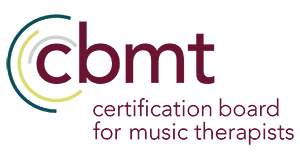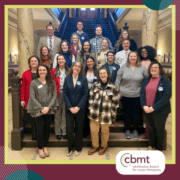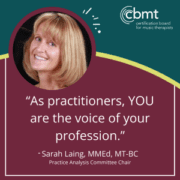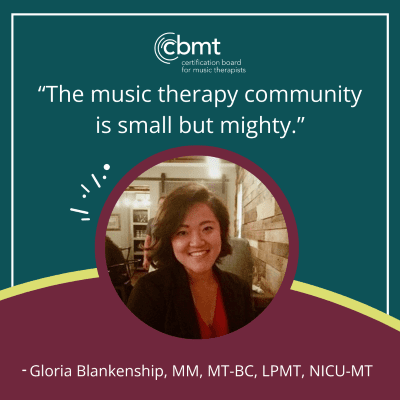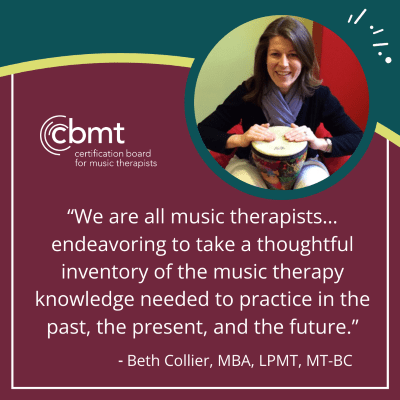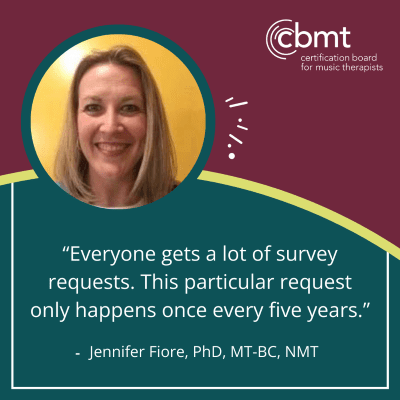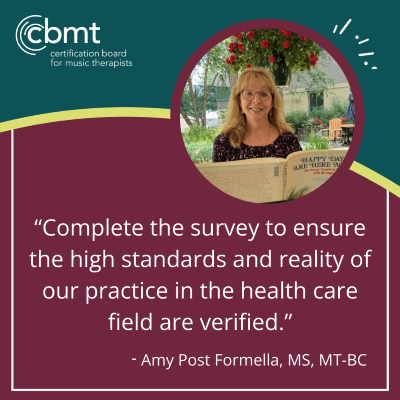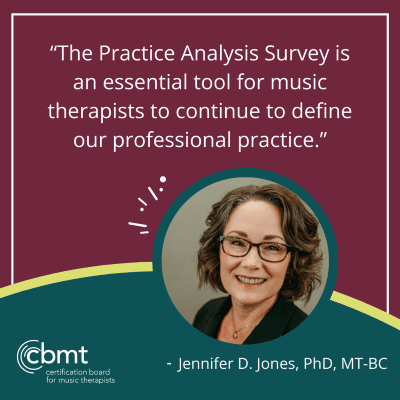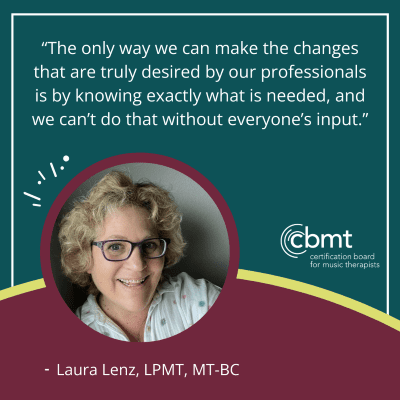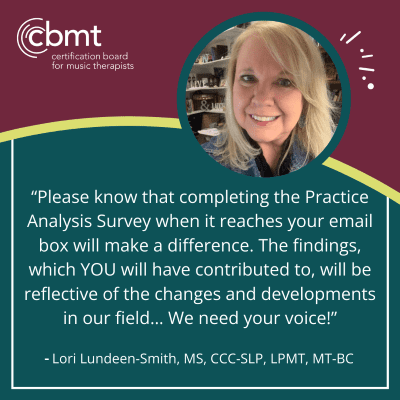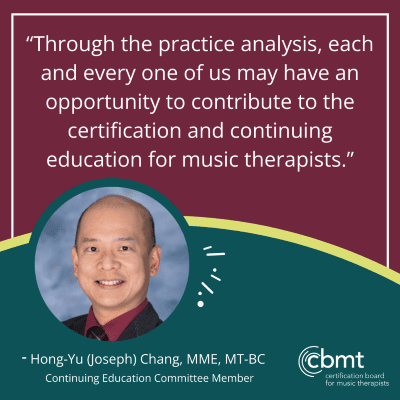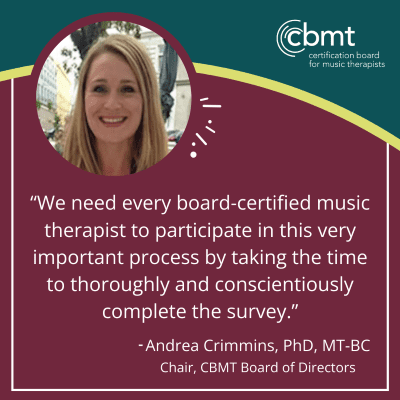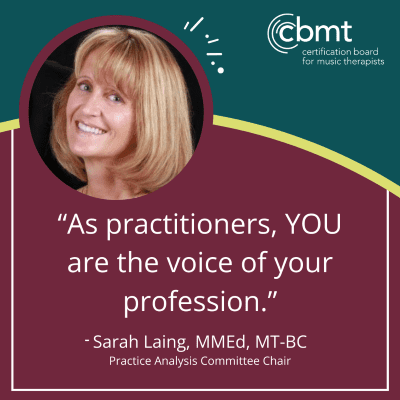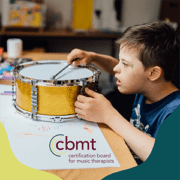Changing Things for the Better | Getting to Know Some of our MT-BC Volunteers in Regulatory Affairs
We wanted you to learn a little more about a few of our current and former state activists who are committed to changing things for the better for all music therapists. Read on to delve a little deeper into their world and explore further why they do what they do.  Megumi Azekawa, MS, MTL, MT-BC, Tacoma, Washington
Megumi Azekawa, MS, MTL, MT-BC, Tacoma, Washington
Founder and Director, Puget Sound Music Therapy, LLC
PhD student, School of Nursing, University of Washington
After 16 years of countless emails and legislator visits, the big win finally came! The state of Washington finally passed a state licensure bill for music therapists. With her task complete, Megumi passed the baton and stepped away from the Washington State Task Force after eight years as its chair/co-chair then her final year as a consultant. Her focus is back on the practice of music therapy.
Her journey into regulatory affairs originally began for her in Colorado, years before, when she first observed the work CBMT Regulatory Affairs Associate Dr. Kimberly Sena Moore was doing and was inspired to help. It was contagious and she carried that inspiration back home with her to Washington state.
“My co-chair, Evelyn Stagnaro, and I, along with our Task Force members, poured ourselves into galvanizing the community through emails, phone calls, in-person meetings, and social media campaigns,” Megumi recalls. “We also collaborated with college professors from our local university music therapy program to get music therapy students motivated for their future profession. Their presences and voices spoke a lot when meeting with the legislators for Hill Day.”
It wasn’t easy, Megumi admitted, but they were determined.
“During the legislative sessions, critical moments happen around the clock, and I don’t know how many texts my co-chair and I exchanged over the years! Asking for last-minute support work from other Task Force members or other music therapists from the community is always a challenge as they have their regular jobs and other commitments. At the end of all this work, why we are doing it is because we believe in music therapy.”
She has a wish list a mile long that she’d still like to see happen. For instance, she’d like to see an inter-state licensure compact bill to allow music therapists from a licensed state to be able to carry their licenses to other licensed states. She dreams of seeing infrastructure to develop and sustain music therapist positions in Washington’s public school systems – and VA systems, too – like some other states already have in place. She dreams of the day all major hospitals have music therapy programs and also support and conduct music therapy research.
And that’s just for starters.
The big legislative win was to pass the licensure bill in 2023, but more importantly, Megumi believes the even bigger win is that the Washington State music therapy community has grown more united along the way. At its core, Megumi believes: “This work is about the relationships you develop.”

Stephanie Johnson, MT-BC. Cedar Rapids, Iowa
Neurologic Music Therapist – Fellow
CEO, Music Speaks, LLC (CA, NE, MN, IA, WI, IL, TN and NC)
In addition to operating Music Speaks in eight states, Stephanie has chaired the Iowa Music Therapy State Recognition Task Force since 2013. During their most active years, she sometimes visited the capitol building one to three times per week during sessions, advocating for recognition of music therapy. It was effective. In 2021, they achieved title protection for music therapy.
The big, public moment, Stephanie shares, was the unanimous vote for title protection of music therapy in the state of Iowa. The biggest non-public win for her was when she met with a legislator who was often against professional regulation. But when he saw an edited video of a music therapy session, he saw the momentous change from the client with dementia not being able to speak to being able to speak within 45 minutes. At that point, he became a champion for music therapy.
It all started when another music therapist asked her to get involved. From that first ask, Stephanie has always felt support, either from her local team or from the national team, so she’s never felt alone. She encourages people to say yes to help with the very next thing that needs help, and then take baby steps from there.
“Of the hundreds of interviews I’ve done over the years, one commonality I can always predict is that music therapists desperately want the public to understand what we do,” Stephanie explains. “I know the motivation is there, but fear of the unknown gets in the way of action. If I could share that it’s the small moments of advocacy that make the difference, not big moments, perhaps there would be less fear of stepping in.”
It’s a challenge being a volunteer on a volunteer team with everyone having jobs and personal lives outside of the volunteer work, but the more people who are involved and willing to help, the better.
“Many hands make light work,” she says. “If we, as music therapists, aren’t waking up every day thinking about how the mechanisms of music can help people, then who is? The ripple effect needs to start with us.”
Her favorite part of the work is seeing those “lightbulb moments” and changing people’s minds from music therapy being a nice-to-have, to a must-have.
“Music and music elements are processed in such a unique way in the brain, sometimes there is no substitute for music therapy when other therapies, professions, or medications are not helping.”

Nancy Swanson, MA, LPMT, MT-BC, Park Ridge, Illinois
Licensed Professional Music Therapist
Northshore Music Therapy, Inc.
Nancy has chaired the Illinois State Recognition Task Force since 2014 but started as a committee member back in 2007 – almost a quarter century of what she describes as failed attempts for state recognition. Countless hours of meetings, Hill Days, legislative meetings, letter writing campaigns, trainings for music therapists on legislative affairs, numerous Calls-To-Action, and more.
Now, they not only have licensure, but Illinois is the first state in the nation to have Music Therapy services covered by Medicaid. That translates to more people receiving music therapy and more jobs for music therapists.
“It never ceased to amaze me,” Nancy recalls, “all the hours each state’s government relations team put into ensuring forward progress of our profession through education and legislative action.”
Nancy also chaired the Government Relations Committee in the Great Lakes Region (GLR) for AMTA, which works in partnership with the CBMT Regulatory Affairs team.
When asked what motivates her, Nancy said she was taught the importance of service from a young age: “As a child, my grandmother would take me to the Red Cross with her every Sunday to set up the room for the week’s blood drive. She lived a life of service and instilled that in me.”
What did it take to get her started? “Another music therapist asked me,” she replied.
“You have to ask people to get involved, but I think that the success that other states are having with state recognition might help to motivate someone to want that same success in their state. Licensure = increased work opportunities.”
Every time she started to lose hope or energy to keep going forward to pursue licensure, she would think about all the amazing music therapists in Illinois (and around the country) doing such impactful work.
What she loves most is working as a team to accomplish such significant milestones: “The dedication that Judy Simpson, Dena Register, Kimberly Sena Moore and our Illinois team all possess inspires me and keeps me asking myself: What’s next?!”
What’s next is making sure all of the details of both the licensure and Medicaid inclusion are ironed out and completed – and that all Illinois music therapists are educated and well-informed on the nuances of the new legislative victories.
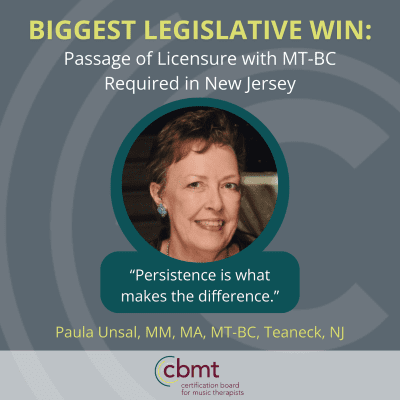
Paula Unsal, MM, MA, MT-BC, Teaneck, New Jersey
Adjunct Faculty, Montclair State University, Montclair, NJ
Paula has been serving as a faculty observer for music therapy students at practicum sites since 2008. Clinically, over the years, she provided music therapy services in day centers and group homes for adults with neurodevelopmental needs, as well as people with dementia and traumatic brain injury.
It was 2012 when she first got involved in the New Jersey State Task Force (NJSTF). Within a year she was co-chair then chair and remains in that position today. Her task force, comprised of New Jersey music therapists, functions under the Mid-Atlantic Region of the American Music Therapy Association (MAR-AMTA) which consists of the seven states of New York, New Jersey, Pennsylvania, Delaware, Maryland, Virginia, and West Virginia.
Concurrently, she serves as liaison, in an appointed position, to the New Jersey Association for Music Therapy (NJAMT), which provides Paula a board seat as Government Relations Chair. In her multiple roles, she also works closely with AMTA and CBMT’s national legislative team.
NJSTF saw the New Jersey music therapist license signed into law January 21, 2020. In the following year, NJSTF supported the nomination and Senate confirmation of two music therapists for seats on the newly created State Board of Creative Arts and Recreational Activities. The license is now under this state board’s purview for the process of regulation writing/review and adoption in order to achieve the final goal of licenses in hand.
“What we can do is to monitor the process and keep everyone informed. There will be a period for public review in which we can provide input; but at that point, it is all but over,” Paula explains.
There were some hair-raising moments, though, as Paula describes it: “Seeing our bill signed into law one month after it had been mistakenly allowed to die in committee; a successful resurrection accomplished without the sponsor, by using contacts established through task force work.“
Keeping people informed and involved – from legislators to music therapists to the general public – has been at the heart of Paula’s work. But it will never be over. There’s so much more to be accomplished.
Once they achieved the license law, they began approaching NJ civil service to update title language and requirements. After two-plus years of persistence, they have been able to submit updated requirements for all the titles and those are now in civil service management review.
While NJSTF could not require the license, because it isn’t yet available, they did include the MT-BC credential as a requirement.
“In this manner, we feel that only qualified music therapists will be hired in the future and the means to ensure that a licensed music therapist is in the position is built in,” Paula said. “Remaining steadfast and trusting in the process through the inevitable disappointments,” Paula says, is the most important thing. “Persistence is what makes the difference.”
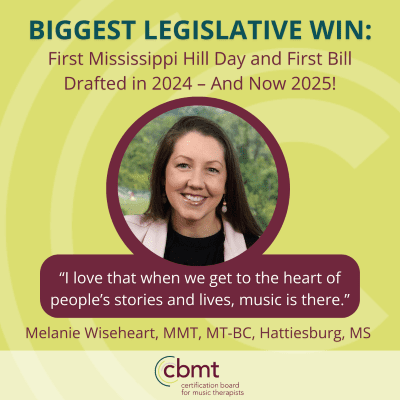
Melanie Wiseheart, MMT, MT-BC, Hattiesburg, Mississippi
Assistant Professor of Music, Coordinator of Music Therapy
William Carey University
As a member of the Mississippi Music Therapy Task Force, Melanie plans and executes Hill Days, facilitates Hill Day trainings, and coordinates MT-BCs and WCU students connecting with their legislators and being the boots on the ground on Hill Day.
It all began for Melanie in Indiana around 2016 when she first began participating in advocacy work. In 2018, when she was on the executive board of the Association for Indiana Music Therapy (AIMT), first as treasurer then as president, her involvement deepened.
In 2022, when she relocated to Mississippi, she carried all that experience, commitment and excitement with her and was quickly welcomed by Katie Drake and the Mississippi task force. They organized the first music therapy Hill Day in 2024 and drafted the first bill for licensure in Mississippi – ever.
“I think a lot of people are intimidated by politicians and political processes,” Melanie says. “I like to remind my friends, colleagues, and students that our legislators are people just like us, that our legislators’ job is to listen to and represent us, that we are the experts in our field.”
When music therapists enter into conversations with that confidence, coupled with humility and an eagerness to learn from legislators, they can “build beautiful working relationships with their leaders.” Those relationships, Melanie believes, are the “cornerstone for progress in regulatory affairs.”
Melanie thinks it also helps to hear regular updates on the successes various states are experiencing.
“It’s easy to think of advocacy as slow, difficult work (and it is!), but when I hear that Washington succeeded in doing this, and Illinois had that big win, etc., it motivates me to stay engaged in the process.”
Melanie would like to see more social media posts from AMTA and CBMT on major and minor wins across the states.
“We have legislation being introduced in around 10 states this year, right? I would love to know more about what is going on in those states! If I don’t live in that state, maybe I have friends or family in that state who can contact their legislators and encourage them to support the music therapy licensure bill.”
When music therapists have an established seat at the table, Melanie believes it reflects their value as professionals and the exceptional service they provide. Licensure lays the foundation for reimbursement opportunities, which means that more clients can access services and experience the benefits of music therapy.
When asked what she hopes to see in the future, Melanie had her wish list at the ready:
- Music therapists would be licensed in every state and be able to bill insurance and Medicaid, just
like other therapies. - Music therapy would be included in disability and elder care waivers in every state.
- Music therapy would be funded by school systems locally.
- Music therapy would have reciprocity among states, so that we could be licensed in one state and still be able to see clients in neighboring states or via telehealth if clients are out of state while traveling, etc.
Presently, in Mississippi, none of that has happened yet. But, in March 2024, after their very first bill had received unanimous support in the House but then died in Senate committee, they already had their 2025 Hill Day booked. They pre-filed a bill in the House for 2025 and secured two authors for a companion bill in the Senate. There is clearly no stopping them now.
“I love that when we get to the heart of people’s stories and lives, music is there. It’s always there. And I love speaking to that as I advocate for the work that we are uniquely trained and qualified to do.”
What a beautiful privilege it is, Melanie reminds us, to tell those stories.
If you want to get involved, simply reach out to your state’s task force. For all the information you need, click on your state in the map located here. Feel free to contact any member of the national team as well.
Read more about CBMT’s commitment to regulatory affairs advocacy in our recent blog. CBMT has more information about advocacy and state recognition on our website. Visit cbmt.org to learn more about CBMT’s role in the field of music therapy.
